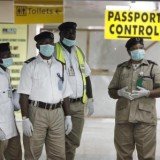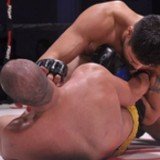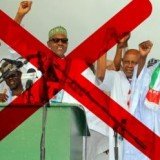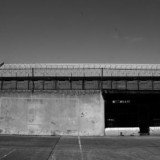Nigeria May Be RIGHT To Hire Mercenaries Against Boko Haram
Sometimes to win a war against an enemy, you’d need help from outsiders—allies, mercenaries, etc.
To make that possible, you may have to spend a lot of money or go against a popular opinion/concept.
We saw that in World War II, Iraq war, and other wars fought in the past.We are even seeing this in the war against Boko Haram.
The Nigerian government hired mercenaries to help them fight against Boko Haram.

One of several images distributed on social media purportedly showing South African contractors in armoured vehicles in Nigeria. Source: Twitter.com
More information on the Mercenaries
These “battle-hardened” Mercenaries are reportedly from South Africa, Ukraine and other ex-Soviet republics.
They pursue private wars simply to put bread on the table (soldiers of fortune).
It is unclear whether they take active roles in the fight against Boko Haram, or are just providing training and technical support for the Nigerian troops fighting Boko Haram.
Most of these people have been in the military, and are mostly in their late 50’s and early 60’s.
However, their experience, knowledge and record of accomplishment lead the way.
Sometimes foreign mercenaries have been saviours—for instance in Sierra Leone, when a privately hired helicopter-gunship crew helped to save the capital, Freetown, from falling into the hands of hand-chopping rebels in 2000. Soldiers of fortune will always find their way to war. Regulating them, rather than trying to ban them, might be a better solution on a continent that has too few effective regular soldiers of its own.–Economist article.
They “changed” everything
If you noticed, the Boko Haram noise has reduced of late.
The Nigerian army released this photo of some of the former captives. Source: BBC News
Many Nigerians have been freed from the clutches of Boko Haram of late.
We’ve not heard of any human right violation committed by the mercenaries.
The change we see today was not the same a few months ago. Therefore, it’s normal to say these changes are because of the activities of this real world “expendables”(just like the movie)…
What these Mercenaries offer to the Nigerian army
Experience
For example, some of Mercenaries from South Africa fought for the “Koevoet” (“crowbar” in Afrikaans) during the 1980s.
The Koevoet is a South African apartheid-era paramilitary unit charged with rooting out nationalist guerrillas in what is now Namibia.
In the words of Louis le Grange, South Africa’s then minister of law and order:
They acted as “the crowbar which prises terrorists out of the bushveld like nails from rotten wood…”
They have assisted several governments in overcoming insurgencies in Angola, Sierra Leone, Iraq and Afghanistan.
Motivation
Every patriotic young Nigerian soldier would be motivated to fight harder just by seeing a bunch of elderly foreign men giving Boko Haram a nightmare.
Training
Boko Haram is used to hiding in the bush.
Some of these mercenaries and experts in finding tracks in the bush.
The Nigerian army stands to gain from their knowledge and skills.
“This is about working in an environment with very limited infrastructure. It’s about tracking and bushcraft.” The South Africans “have many skills in that regard”.—Jakkie Cilliers of the Institute for Security Studies, Pretoria.
Credit of good work
The mercenaries appear to have reportedly adopted a rather low profile, attacking usually at night and pulling out in the morning for the Nigerian government to claim credit.ing out in the morning for the Nigerian government to claim credit.



















